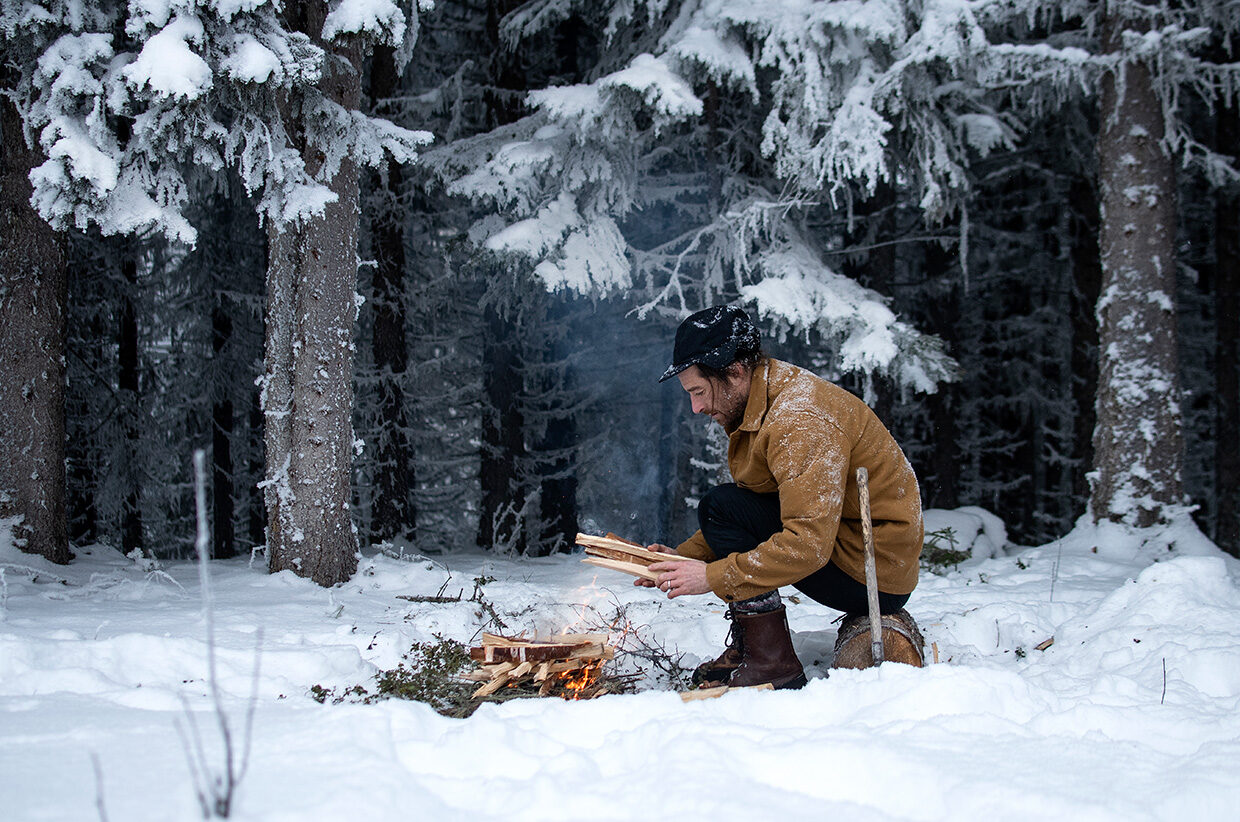As wilderness tourism takes off, new book Under the Open Skies describes how to survive in extreme environments and why time in nature makes us happier. Olivia Palamountain reports
Ever felt like trading in the rat race for the good life? In Under the Open Skies: A Practical Guide to Living Close to Nature, author, lecturer and former ultra-runner Markus Torgeby goes one step further, abandoning his urban lifestyle to live on his own in a hut in the middle of the Jämtland forest in northern Sweden. He ended up living there for four years, with nothing but an axe and a sleeping bag.
That was 20 years ago. Today, Marcus and his wife and three children live in a house they built themselves in the middle of the same woodland, where he once survived on foraged goods, oatmeal and river water.
A hymn to the joys of solitude and the great outdoors, Under the Open Skies combines escapism and adventure with a love of nature and the desire for a simpler life, and chronicles the story of Markus’ journey from broken youth, to living alone in the forest, to a self-healed family man.
As Marcus tells Sidetracked: “Life was tough when I was young. My mother had MS and I didn’t get on well at school. I soon discovered that going out running was always a big relief, taking away some of the pressure; I ended up doing a lot of it.
“Before long, I wanted to see if I could make it to the European Championships, so I did more high-altitude training. But I was training really hard, and it was too much. My foot completely collapsed. I used running as a stress release, and when I didn’t have that I couldn’t cope with the thoughts in my head.
“Running was my way of living, so when my foot collapsed, I had no direction. I realised that I must find a new way to live. I thought if I could put myself in a situation where everything is closer to a human being’s basic needs then maybe I would find something to live for. So I just followed that feeling. I got the train from Gothenburg up north to the Arctic Circle and followed a thought. It was hard, but it was the right thing to do. The move saved my life.”

In the vein of Lars Mytting’s Norwegian Wood or Erling Kagge’s Silence in the Age of Noise, this novel is part practical guide to how to live in the wild, part meditation on the human need for connection with the natural world.
Illustrated with photographs taken by Marcus’ wife Frida, Marcus’ descriptions of living close to nature combine everyday philosophy and inspirational insights with helpful advice on how to create fire, the best techniques for chopping logs and how to forage for food.
Under the Open Skies is proof of the restorative powers of the outdoors and how the desire for a simpler existence helped one man find contentment and connection with the world around him, and how we can all learn from his experience.
Sleeping under the stars (Celestical Escapes) is a trend that Globetrender editor and founder Jenny Southan recently identified for a report she co-authored with Euronews (see below).
In a spin-off article she wrote for Euronews Travel, she said: “In the viral age, a craving for wide-open spaces, as well as a more pronounced desire to understand the meaning of life, will see people drawn to wilderness locations that offer peaceful, contemplative nights under the heavens.”
She added: “With the on-going pandemic not just causing harm to people’s physical wellbeing, it is also inflicting great psychological damage. For many people, the experience will cause long-lasting PTSD (post-traumatic stress disorder).
“Although doing a bit of wild camping will hardly be a panacea, there has been consistent and compelling evidence that spending time in nature greatly improves our mental health.” Swedish survivalist Markus Torgeby agrees.






